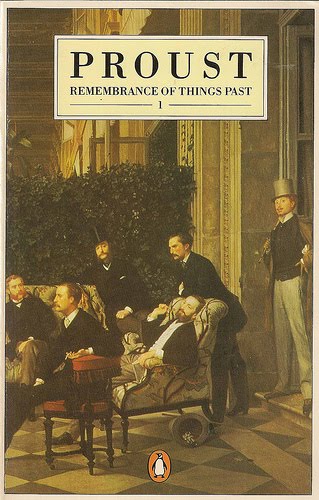
 About a month ago, Wired magazine published a widely discussed article on a scientific breakthrough that will have huge implications for psychotherapy, bioethics, and human self-understanding: apparently, memory is not perfect.The author — Jonah Lehrer, the popular writer on neuroscience — reports on some scientific findings regarding the reconsolidation theory of memory retrieval, which holds that every time a memory is recalled, the brain needs to recreate the memory, just as it did when the memory was originally formed. He quotes one of the researchers describing his work in terms of Thomas Kuhn, saying that he is overturning “a very stubborn paradigm.” And Lehrer seems to agree with this characterization:
About a month ago, Wired magazine published a widely discussed article on a scientific breakthrough that will have huge implications for psychotherapy, bioethics, and human self-understanding: apparently, memory is not perfect.The author — Jonah Lehrer, the popular writer on neuroscience — reports on some scientific findings regarding the reconsolidation theory of memory retrieval, which holds that every time a memory is recalled, the brain needs to recreate the memory, just as it did when the memory was originally formed. He quotes one of the researchers describing his work in terms of Thomas Kuhn, saying that he is overturning “a very stubborn paradigm.” And Lehrer seems to agree with this characterization:
Once a memory is formed, we assume that it will stay the same. This, in fact, is why we trust our recollections. They feel like indelible portraits of the past.None of this is true. In the past decade, scientists have come to realize that our memories are not inert packets of data and they don’t remain constant. Even though every memory feels like an honest representation, that sense of authenticity is the biggest lie of all.
Reconsolidation theory and the research behind it are potentially important contributions to the neuroscientific study of memory. But Lehrer grossly exaggerates the significance of these findings by repeatedly trying to characterize them as novel and revolutionary when they are not.—The problem starts from Lehrer not making much effort to distinguish between the two big takeaways from this research, which are: (1) memory can be altered by the act of recollection; and therefore, (2) memory is fallible. The first part is reconsolidation theory itself. Lehrer presents some evidence that this idea has only recently entered the scientific mainstream, but as for its being revolutionary, well, he himself notes in a follow-up blog post that scientists have been conducting research in support of the idea for almost a hundred years. Moreover, as he also notes in the article, the idea has been basically assumed by psychotherapists for decades. It’s the second point that’s really supposed to be revolutionary, though: Lehrer uses as a foil the supposedly naïve conventional and ancient philosophical wisdom that human memory works like a videotape, accurately recording and replaying events. But he does this mainly by misrepresenting or misunderstanding the way others have thought about memory in the past.The first volley is fired at Plato, who, Lehrer says, “compared our recollections to impressions in a wax tablet.” But Plato, in the Theaetetus, discusses this model only to quickly reject it. More to the point, Plato does so precisely in an effort to explain why beliefs can be false and memories unreliable. The naïve assumption that memories are “inert packets of data” has certainly had its adherents over the years — most of them in the last century, really, when such metaphors came into vogue — but the idea that memories are fallible, and that they have a life of their own, is at least as old as philosophy and literature. Indeed, even without philosophical reflection there are certain self-evident aspects of memory that show us how it can be imperfect; memories are clearly less distinct than present experiences, and no one trusts their recollections to the same extent they trust their perception.Lehrer suggests that these developments in neuroscience constitute a transgressive and exciting challenge to entrenched beliefs about human nature. But there’s no apparent reason in this case for why neuroscience should be fighting with ordinary human self-understanding — indeed, this seems like a perfect case of neuroscience coming around to realizing and providing some biological explanation for a phenomenon that’s already very familiar.The fact that people have always known memory to be fallible still leaves unknown why this is so, and does not diminish the value of neuroscientific research that might help explain it. Moreover, this possible biological explanation for why memory can be inaccurate does not show that memory is arbitrary or always unreliable, or that memory cannot or does not have some strong relation to the truth.—
It’s the second point that’s really supposed to be revolutionary, though: Lehrer uses as a foil the supposedly naïve conventional and ancient philosophical wisdom that human memory works like a videotape, accurately recording and replaying events. But he does this mainly by misrepresenting or misunderstanding the way others have thought about memory in the past.The first volley is fired at Plato, who, Lehrer says, “compared our recollections to impressions in a wax tablet.” But Plato, in the Theaetetus, discusses this model only to quickly reject it. More to the point, Plato does so precisely in an effort to explain why beliefs can be false and memories unreliable. The naïve assumption that memories are “inert packets of data” has certainly had its adherents over the years — most of them in the last century, really, when such metaphors came into vogue — but the idea that memories are fallible, and that they have a life of their own, is at least as old as philosophy and literature. Indeed, even without philosophical reflection there are certain self-evident aspects of memory that show us how it can be imperfect; memories are clearly less distinct than present experiences, and no one trusts their recollections to the same extent they trust their perception.Lehrer suggests that these developments in neuroscience constitute a transgressive and exciting challenge to entrenched beliefs about human nature. But there’s no apparent reason in this case for why neuroscience should be fighting with ordinary human self-understanding — indeed, this seems like a perfect case of neuroscience coming around to realizing and providing some biological explanation for a phenomenon that’s already very familiar.The fact that people have always known memory to be fallible still leaves unknown why this is so, and does not diminish the value of neuroscientific research that might help explain it. Moreover, this possible biological explanation for why memory can be inaccurate does not show that memory is arbitrary or always unreliable, or that memory cannot or does not have some strong relation to the truth.— These problems with Lehrer’s account would not be so important if not for the highly flawed ethical arguments he uses them to support. You see, another implication of this research is the possibility of creating drug-based therapies to erase the painful aspect of particular memories, or even the memories themselves. By way of supporting this possibility, depicting as naïve the idea that memory always is truthful becomes the basis for depicting as naïve the idea that memory ought to be truthful.In that blog post following up on his article, Lehrer gives the supposed ancient philosophical wisdom about memory a modern voice in the ethical analysis of this topic by the President’s Council on Bioethics in its 2003 report Beyond Therapy. As he describes it, the Council
These problems with Lehrer’s account would not be so important if not for the highly flawed ethical arguments he uses them to support. You see, another implication of this research is the possibility of creating drug-based therapies to erase the painful aspect of particular memories, or even the memories themselves. By way of supporting this possibility, depicting as naïve the idea that memory always is truthful becomes the basis for depicting as naïve the idea that memory ought to be truthful.In that blog post following up on his article, Lehrer gives the supposed ancient philosophical wisdom about memory a modern voice in the ethical analysis of this topic by the President’s Council on Bioethics in its 2003 report Beyond Therapy. As he describes it, the Council
declared the possibility of erasing traumatic memories deeply dangerous, and worried that it would lead to the unraveling of “moral responsibility” in society. After all, if we can choose to forget our pain, then what would prevent us from thoughtlessly inflicting pain on other people? “Without truthful memory, we could not hold others or ourselves to account for what we do and who we are,” the Council wrote. “Perhaps no one has a greater interest in blocking the painful memory of evil than the evildoer.”
This argument at first seems “perfectly reasonable” to Lehrer, since “even the worst memories serve an important purpose, allowing us to learn from the past.” But his agreement turns out to be rhetorical, for
the verdict of the Council, grounded in our ancient intuitions about memory, is also problematic. The main reason is straightforward: Although the Council repeatedly proclaims the importance of maintaining “authentic” memories, they failed to realize that such an ideal form of memory doesn’t exist. There is no such thing as immaculate recall….
But the word “authentic” does not even appear anywhere in the part of the Council’s report dealing with memory. Moreover, the Council itself acknowledges precisely the point about memory reconsolidation that Lehrer claims vitiates the Council’s analysis:
it is important to note that “stored memories” do not remain static. Every time we recall a memory, what gets stored after such acts of recollection is a different memory, altered on account of how we, in recollecting it, have “received” and reacted to it. Once encoded, memories can be altered by recall.
Lehrer is criticizing a straw man. Not only does the Council’s argument not presuppose some idealized notion of perfectly accurate memory, but there is no reason for it to. Would evildoers only have an interest in blocking painful memories, in themselves or their victims, if those memories were perfect? Does the fact that memories can change or be imperfect mean that they have absolutely no relation to the truth? Does it mean we have no ethical or emotional interest in them bearing some relation to the truth?Questions like these are the ones that the scientific discoveries Lehrer mentions really seem to raise, but Lehrer seems more interested in making bold bioethical pronouncements on the basis of neuroscientific findings than examining these tough bioethical questions. I’ll turn to comparing the Council’s analysis of these questions about the ethics of memory alteration with Lehrer’s analysis in my next post.Images: Eternal Sunshine of the Spotless Mind; Photo Album (via Shutterstock); Marcel Proust’s Remembrance of Things Past
